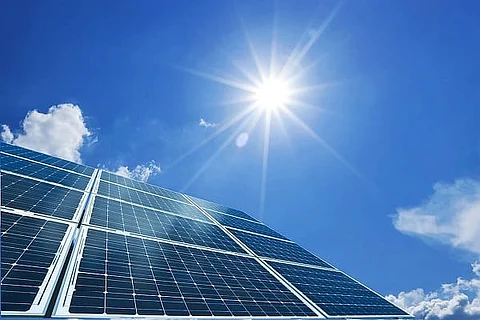
- News Updates
- PSU Watch
- Defence News
- Policy Watch
- हिन्दी न्यूज़
- Jobs Watch
- States News
- Event News

New Delhi: In the backdrop of several states imposing lockdowns to curb the second wave of COVID-19 infections in India, the Solar Power Developers Association (SPDA) has urged the Centre to grant an additional three-month extension in the project commissioning date. The Ministry of New and Renewable Energy (MNRE) had already granted an extension of five months to renewable energy (RE) developers in August 2020 in view of the disruptions caused by the COVID-19 pandemic. However, because of a steep rise in COVID-19 infections over the past few weeks across the country, several states have imposed restrictions, affecting the availability of labour and government approvals, said the SPDA.
Power purchase agreements (PPAs) signed by solar power project developers involve strict commissioning deadlines, and a failure to meet them could result in fines and redemption of bank guarantees.
In an official statement released recently, the SPDA said, "The second wave of the COVID-19 pandemic has made rapid progress. Large increases have been recorded in Maharashtra, Karnataka, Tamil Nadu, Madhya Pradesh, Uttar Pradesh, Punjab, Rajasthan, etc. The local administration has announced vaccination measures and local restrictions affecting the movement of staff, labour and delays in multiple government approvals, authorities, etc. Due to the second outbreak, the solar energy developers are again faced with a labour shortage at the sites, which means that the construction of the project has to be halted again."
"Since the projects are located in locations that are far from where the workers live, the project activities must be completed by 5:00 pm. Again, it hinders the speed of construction. There is a general fear that such a situation could result in a significant delay in the start-up of projects," the statement added.
At the time the government granted a five-month extension to solar power project developers in August 2020, it was assumed that the situation would stabilise by the end of the five-month period, allowing developers to meet their project commissioning deadlines. However, a fresh rise in infections has derailed the progress of these projects once again, the SPDA contended. "Government. had taken note of the problems and granted an OM on August 13, 2020 for five months relief for the flat-rate extension. The extension was granted on the assumption that it would normalize equipment supplies, logistics, labor supply, the functioning of government offices, etc," said the SPDA in the statement.
"Also government interventions. The economic recovery is laudable indeed. SPDA wishes to highlight the ongoing challenges the solar industry has faced over the past year and which have become even more acute over time. Many solar projects are pending in the states of Rajasthan and Gujarat. Due to the high summer season, project construction work is usually carried out in the late afternoon and ends in the evening. Some companies also work night shifts to meet the project schedule. However, due to the second wave of COVID-19, the district administration has imposed a curfew in many places," it added.
India has set for itself a target of reaching 175 GW od renewable capacity by 2022. This will include 100 GW of solar power. According to an estimate released by the Central Electricity Authority (CEA), the country's electricity requirement will grow to 817 GW by 2030 and half of the demand will be met by clean energy, and 280 GW would come from solar energy alone.
(PSU Watch– India's Business News centre that places the spotlight on PSUs, Bureaucracy, Defence and Public Policy is now on Telegram & Twitter as well. Join PSU Watch Channel in your Telegram and follow us on Twitter to stay updated)
